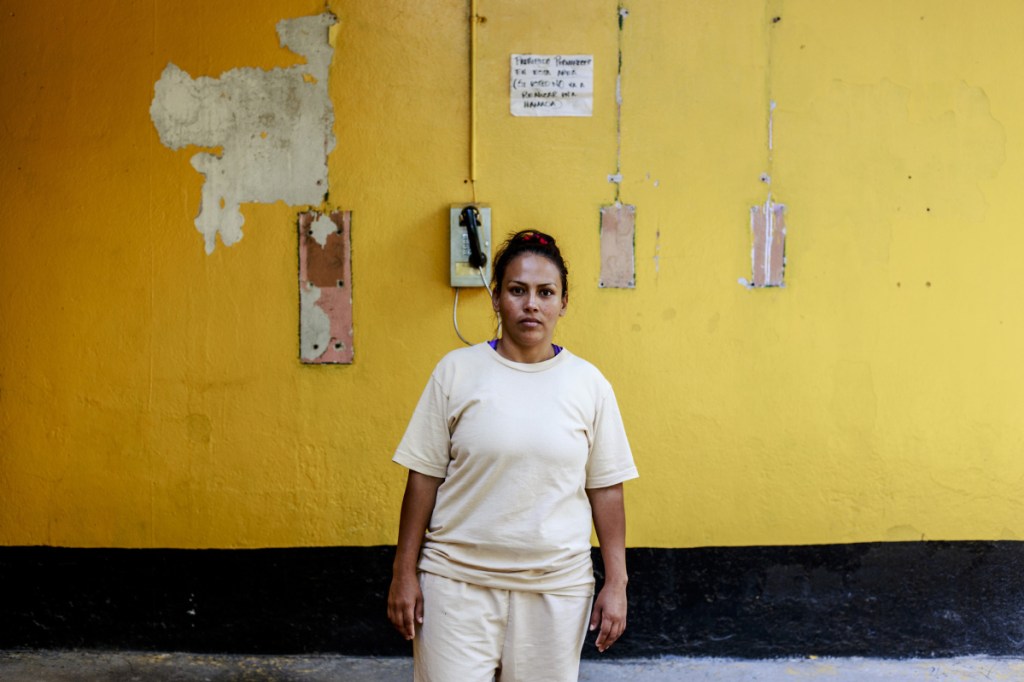SAN SALVADOR, El Salvador — Alba Lorena Rodriguez was five months pregnant when she started to feel sharp pains in her stomach while at home in December 2009. She fainted.
When she awoke, she says, she realized she had lost her baby.
Rodriquez, now 39, says she had a miscarriage. But the state accused her of killing the fetus, and she was convicted of aggravated homicide in a suspected abortion case. She denies having an abortion and says she mourned her miscarriage.
“Tell me, if I had intended to kill the baby, would I have held a vigil?” Rodriguez said during an interview at Ilopango women’s prison on the outskirts of San Salvador, where she has served eight years of a 30-year sentence.
Rodriguez is one of at least 25 women who have been incarcerated – many facing decades-long sentences – since El Salvador made abortion illegal under all circumstances in 1998. Most of these women claim to have had late-term obstetric emergencies or stillbirths. Many have been separated from their children while in prison.
Two of them were released this year after they successfully appealed their convictions. Now, Rodriguez is petitioning to have her sentence shortened based on a lack of evidence. Lawyers, activists and legislators are hoping the rulings to release these women will eventually translate into a more lenient abortion law.
El Salvador is one of 26 countries with an absolute ban on abortion, and its battle over abortion rights is echoed around the globe, with several countries grappling with changes to legislation. Ireland, Brazil and Chile, among others, have made moves to loosen restrictions on abortion in recent months.
In other places, such as Poland and parts of the United States, abortion rights are facing renewed challenges. In August, legislators in Argentina voted against legalizing abortion for pregnancies of up to 14 weeks by a narrow margin.
In El Salvador, Rodriguez is part of a group of women referred to as “Las 17” or “The Seventeen,” for the 17 identified cases of women imprisoned under the country’s abortion laws when the campaign to release them began in 2013.
Victor Hugo Mata, a lawyer with the Citizen’s Group for the Decriminalization of Abortion, which works to free the women, said he thinks bias plays into judges’ decisions to condemn these women.
“When (these types of miscarriages) happen to a woman, judges assume it’s because there’s something more there. To them, it’s not possible that they could be innocent,” Mata said. “There are very few judges who see it differently.”
Rodriguez said she was barely given a chance to speak at her trial. Her lawyer, a public defender she had met that day, knew few details about her case, she said. On July 15, 2010, Rodriguez was sentenced to 30 years in prison.
Thousands of other Salvadoran women have abortions each year. The most recent statistics from the Salvadoran Health Ministry report an estimated 19,290 clandestine abortions from 2005 to 2008. Women who can afford it pay for abortions at private clinics or travel outside the country to have an abortion, according to activists.
The Salvadoran state has started to review these cases and release some of the women. In February, Teodora del Carmen Vásquez was released after 10 years behind bars for aggravated homicide for what she says was a late-term miscarriage. The Salvadoran Supreme Court ruled there was not enough evidence to prove the case.
Send questions/comments to the editors.




Success. Please wait for the page to reload. If the page does not reload within 5 seconds, please refresh the page.
Enter your email and password to access comments.
Hi, to comment on stories you must . This profile is in addition to your subscription and website login.
Already have a commenting profile? .
Invalid username/password.
Please check your email to confirm and complete your registration.
Only subscribers are eligible to post comments. Please subscribe or login first for digital access. Here’s why.
Use the form below to reset your password. When you've submitted your account email, we will send an email with a reset code.